Prior guests on the show have expressed a desire for someone to objectively talk about the retirement crisis and the positive role annuities can play in solving it. That person has arrived. Today, we talk with Doug Orchard, an independent film maker who is about to release “The Baby Boomer Dilemma” at a theater near you. And our guest host this week is none other than Bruno Caron.
Links mentioned in today’s show: http://dougorchard.com/wp/
Do you want to get regular updates on news from Doug and other guests of our show? Scroll down and enter your email under “Receive Updates” to subscribe to our newsletter.
Watch
Listen
Receive Updates
Show Sponsors
The discussion is not meant to provide any legal, tax, or investment advice with respect to the purchase of an insurance product. A comprehensive evaluation of a consumer’s needs and financial situation should always occur in order to help determine if an insurance product may be appropriate for each unique situation.
EPISODE TRANSCRIPT:
Paul Tyler:
Prior guests on the show have expressed a desire for someone to objectively talk about the retirement crisis, and the positive role annuities can play in solving it. That person has arrived. Today, we speak with Doug Orchard, an independent filmmaker, who’s about to release the Baby Boomer Dilemma at a theater near you. And our guest host this week is none other than Bruno Caron. We want to thank our primary sponsor and my employer by day, Nassau Financial Group, our tagline is working harder to be your carrier of choice. We support you with best in class service. We seek to keep things simple and will have your back in the years to come. We’re headquartered in Hartford, Connecticut with 27 billion in assets, and over a half a million policy holders. We’ve been doing this a long time, 170 years, but we remain humble enough to always try to improve.
Intro:
Welcome to That Annuity Show the podcast that will make you an expert in explaining annuities to your clients. Give us 30 minutes each week, and we’ll shave hours from your client presentations. Now here’s your host, Paul Tyler.
Paul Tyler:
I just all Tyler and welcome to another episode of That Annuity Show. Ramsey, great to see you this morning.
Ramsey Smith:
Great to be here as always and very excited about today’s guest and our guest host Bruno.
Paul Tyler:
Yeah, our guest hosts, Bruno.
Bruno Caron:
Ver…
Paul Tyler:
Bruno Caron, how are you? Welcome.
Bruno Caron:
Well, thank you, and appreciate the, again, the opportunity to be a guest host, especially with the guests we have today, which I have a pleasure to introduce. His name is Doug Orchard. He is an award winning filmmaker, cinematographer, and director. He’s directed many movies including The Truth About the Pandemic Flu, The Motivation Factor, revenue credit, sorry, Revenue Reserve Fasting. And he’s here today to discuss his new documentary, The Baby Boomer Dilemma. So, Doug, welcome.
Doug Orchard:
Hey, thank you very much. I actually brought a clip of the trailer, so maybe you want to watch that right now. It would probably be helpful.
Paul Tyler:
You know what? I’m going to cue this up because first of all, Doug, thanks for joining us. And I’ve never seen a documentary like this. So, with that, I’m going to cue this up, and fasten your seat belts this is going to be a great show.
Edward Siedle:
If you’re counting on a pension being there when you retire, you should be aware that there are consultant corporations are busy hiring to figure out how to screw you out of your pension benefit. And that’s what’s happening across the world right now.
William F. Sharpe:
And it’s scandalous, and it’s creepy.
Robert C. Merton:
Everybody seems to like a pension. If you doubt that, try taking it away from them and you see how people react.
Brigitte C. Madrian:
Those are a risky type of retirement plan to operate because you don’t have a lot of certainty today about what your obligations will be in the future.
Ted Benna:
Well, most people refer to me as the father of 401K because I designed… Got an internal revenue approval of the first 401K statements plan.
Speaker 11:
I don’t want to do what my father’s family did. I don’t want to do that.
Speaker 12:
I know lots of people have a 401K and it works really well.
Sheryl Moore:
When the.com bubble burst, my 401K became a 201K. I did not know that you could lose money in a 401K.
Speaker 14:
I’m ready to retire. We have all of our money, and then the crash happens.
Speaker 15:
The reality is that you chose the risk based option, where money was in the market.
David Babbel:
You give the burden of planning retirement, place it upon the shoulders of the person who knows the least. I think it was a disaster.
Brett Kitchen:
There’s got to be a better way to try to save for retirement than using something where half your money can disappear almost overnight, and there’s nothing you can do about it.
Moshe A. Milevsky:
And what’s been happening over the last few years is, yes, our accounts have been growing. It looks like we’re getting wealthier, but the income that we can get from that sum of money is shrinking.
Tom Hegna:
Retirement is so much different, and the advisors need to shift to become income experts, and retirement income experts, and risk managers.
David M. Walker:
You have to figure out what are you going to get from social security Medicare.
Olivia S. Mitchell:
It’s been estimated that of social security will run out of money, not entirely, but it will run out of money such that benefits will have to be cut by one third for everyone, current retirees, future retirees.
Michael J. Gallagher:
What is often underappreciated is that doing nothing and really politicizing the issue is a way of doing nothing will result in a massive cut to everybody’s social security benefit.
Paul Tyler:
Okay. Wow. First of all, I’ve never seen anything like this Ramsey, or Bruno on the issues that we care most about. Have you have either of you?
Bruno Caron:
No, I agree, Paul.
Ramsey Smith:
No.
Bruno Caron:
Your platform has always been top notch and I’m personally the one who always gets those issues. So I understand completely.
Ramsey Smith:
Yeah, it was fantastic to watch for a number of reasons. For one thing, there are a lot of familiar faces in the video. So there are a lot of people that we know from the industry that we’ve had as guests here on That Annuity Show. And it was really a very good mix of people in the industry talking about what they know, and then sort of the dramatic backdrop with the family you brought into the process. Doug. So, thank you for putting it together. I think it’s a very important issue.
Bruno Caron:
Absolutely.
Doug Orchard:
Thank you very much.
Bruno Caron:
Yeah. Congrats on [crosstalk 00:06:19] this incredible achievement. To Ramsey’s point, so many top familiar facing are from the academic world, from the sales side, from the industry, I think it really, really rounds it well, and brings across the right message.
Ramsey Smith:
So, Doug, the big question I have is you’ve been a documentary filmmaker for quite some time. We had a chance to talk to you ahead of the podcast and your journey’s been a remarkable one. What brought you to this specific topic? What made you bring your talents to this specific issue, and motivated you to put so much time, and energy into this project?
Doug Orchard:
So, back in 2018, I made a documentary called The Power Of Zero, and that looked at the national debt. And it also looked at the question of, should we, if taxes have to go up as a consequence of our excessive spending over the last couple decades, should we be shying away from paying taxes today and pay them later if taxes going to be higher later than they are today? So, that film really looked at that question. When it was complete, Tom Hegna and quite a few other people in the industry asked if I would make a retirement movie, one that really looked at retirement income. And for the past three and a half years, there’s been a lot of talk, and discussion about the framework, how that would look, but it never really got me to the point I was ready to pull the trigger.
Doug Orchard:
And so what happened is there was a nexus of two things that got me really interested. One, was for another movie that will be coming out early next year, called M&A it’s the big film about mergers, and acquisitions. Baby boomers own the vast majority of all small businesses that are three employees or more representing $10 trillion, and only 20% of businesses in that framework ever sell successfully. And so you’re looking at roughly eight trillion that are going to go up in smoke when the baby boomers retire, because they won’t be able to pass it on to anybody. And so that was interesting. And one of the economists for that movie, who’s not in this film, he wrote a book called Prosperity in the Age of Decline back in 2013. And he’s a forecaster, he and his brother, and a good one. Past decade or so, they’ve had a 98% success rate forecasting in six months or a year from now, what the economy’s going to look like, whether you should have inventory.
Doug Orchard:
So, the big companies of the world hire them to say, “Hey, should we be increasing inventory or not?” Well, since 2013, he has looked at the demographic problem and said, “The United States of America will be going into a great depression to a depression in the year 2030”, and why, because of the demographic, underfunding problem associated with social security is the reason. Social security will not have enough money to pay the monies owed. And when that occurs, everyone’s going to reexperience a haircut as that trailer showed. Now, it may not be a third, but it really doesn’t matter what it is. Any haircut with that volume of people, because these retirees who receive guaranteed in income spend 99% of it every single month, those are what Tom Hegna calls playchecks. So they spend all their money each month. So they’ll have less money to spend. So if it’s 10% less, that’s a 10% reduction that goes in to our nation’s GDP.
Doug Orchard:
So, structurally in 2030, we have a depression as a nation it’ll last at least six, or seven years. And it’ll be very, very significant. Well, as I learned about annuities, and I had this conversation that was absolutely convincing was, for me, with a professor from Wharton, Dr. David Babbel, who he had me sit on his couch with him before I interviewed him, and spend hours with me actually going over these charts that he created for me to convince me that this is a message that absolutely needs to get out there. Because he knew that I was very independent, and this film could be anything it’s going to be in. And he spent serious time with me. And he absolutely convinced me that, of what happens when you have guaranteed income that’s not dependent on the government or someone else like that, or a pension falling short.
Doug Orchard:
If you had that essential needs met by the annuity, and all the baby boomers were to do this over the next couple years, let’s think about what would happen. 2030 rolls around, and they have to do a haircut on social security, you can spend every penny still on that annuity, and you’re fine. We would not experience as a nation, what will absolutely happen if we don’t do this. And so I’m always interested in what will move the needles for society. And I make films only when I think that this is something that could be important, because my films tend to last a long time, because it’ll be sitting there for a decade on iTunes, and Amazon and all that stuff.
Doug Orchard:
And so you want it as relevant 10 years from now as now, but I can’t think of anything that has a greater likelihood to prevent what demographically, and math shows will happen. You can’t… Once you look at this problem, you come to the conclusion, “Oh, wow. We really will experience a depression.” It’s unavoidable. I mean, and so his whole book is about prosperity and age of decline. Here’s how you sell your assets before that happens, and how you buy a bunch of stuff cheap later and all that. But I’m more interested in the question of how do we prevent this, because that will decimate so many people if that were to happen.
Bruno Caron:
And wasn’t there an argument in your movie about economists sometimes disagreeing on one single topic, but on that particular one, actually agreeing if I’m not mistaken.
Doug Orchard:
I could not find disagree agreement in that entire state of academia on the point of the value of pulling resources together, people together for the distribution of their retirement assets. It is considered the most efficient way to distribute assets in wealth. That’s something no one disagrees on. Now what percentage of your income should be there? and which kinds of products? Sure. A lot of thoughts there, but on that principle, there’s no disagreement. And yet you would think that there’s disagreement based on what’s out there on how people talk about annuities, and of course, that’s the message I had been receiving, I’m 52, my entire life. To the point, and I’ve been in this space for a while in that I keep touching into the financial advisor world since 2004, I keep kind of being introduced, doing something there that I’m out and I’m doing other things. And in one of my decisions early on in that I never saw anything to change my mind was, “Well, I’ll be in all these other assets, but I’ll never own annuity. Why would I own that?”
Doug Orchard:
And because it seemed like everybody, that was the general conclusion. That was the general conclusion of everyone. It just seemed like, “Oh yeah, you don’t own annuity. That’s just [inaudible 00:14:15].” And then when I look at the people who actually have spent their entire lifetime, looking at that question at the highest level from MIT to Stanford, all the way through Wharton, and these are the individuals who not just have PhDs, and dissertations on it and published on it, but had been recognized, and received a Nobel prize for it in the space. Okay, so this is the top of the top. All of them have annuities. I didn’t, and I used the word all without any check. All of them have annuities and they don’t have to. They have enough, they’ve been doing well. They don’t have to. All of them have annuities. And so that is the one thing that I thought, “Well that maybe I don’t understand it.” And I didn’t.
Bruno Caron:
Would it…
Paul Tyler:
Okay. So we’ve had a number of people on our show, Doug, come on and say, “We got to do better job talking to consumers telling our story. Oh, wow. Here’s this movie. By the way, that’s right, it’s PG. Maybe just explain to us, what does it mean to have a rating with a movie? What does that enable you to do that others may not have been able to do, to tell a story to a broader audience?
Doug Orchard:
Right? So the Motion Picture Association, people will always say of America, it’s actually just the MPA now. They try to be international, but the MPA has a group called CARA, C-A-R-A. And that’s the part, that’s the division that does the ratings. So they have individuals that look at films to give it a rating. And that’s required if you’re going to play in a theater, you have to have a rating. You can’t be in a theater without a rating, that’s required. And so they also have people on that team who have one specific job, and that is, should this movie be here to receive a rating? Well, what are things that we would get that would be disqualified from being there? Well, the number one, the very first thing is corporate infomercial. If it’s an infomercial, if it’s a corporate video, if it’s a sales pitch for something, a product or whatever company, it can’t be there, it would be gone. And so you think, “Well, wait a second, I’ve seen a movie about Steve Jobs. Steve Jobs, he’s with Apple.”
Doug Orchard:
Like how did they do a documentary on Steve jobs? Well, and trust me, I’ve studied this probably more than almost anybody, because I was interested in doing things in spaces that were really close. How do you do that? Well, Steve jobs is a film about Steve jobs. It’s an artistic look at him. It’s not a film about Apple. If you were to make that same movie and say, this is a film about Silicon valley, this is a film about… So you have Apple, you have Microsoft, and you look all this stuff. And then Steve’s in it, and Bill Gates, and that would be turned down, but it was about Steve Jobs, and it was an artistic treatment of him. And so the Motion Picture Association is interested in art. So when you’re an artist, you have a different lens that you’re looking at a question about. And if you go look at documentaries and you stack rate all of them, and by the way, this past year, you would have probably close to 14,000 documentaries that were submitted to Sundance Film Festival.
Doug Orchard:
That’s how many happen every year that think that they’re the caliber to be at Sundance 14,000 of them. How many of those are rated by the Motion Picture Association? Almost none. 99.9, whatever percent of all documentaries do not have a rating by the Motion Picture Association. Why? Because they’re infomercials. That’s what they are. It’s not that there’s a huge cost associated, there’s a cost, but it’s not nearly as much as my music, and all these other things cost. The issue is they can’t get a rating because they’re infomercials. And so at the outset, I tell everyone, this is going to be rated by the Motion Picture Association. What does that do for me as a filmmaker? It means I get to be objective. Nobody gets to tell me, “Oh, this has to be in it, all that stuff.” No, sorry that can’t be in it because, and it allows me to make films in the space that I’m interested in making them, and I want to stay there. Why? Because I’m still young. And I want to do a lot more of these. And I don’t want someone to have a problem later.
Doug Orchard:
I’ve never had a problem with anybody in any of my movies later say, “Oh, I wish I wasn’t in that movie. It didn’t turn out the way I thought it was going to be”, that ended up being a infomercial for this. So, that hasn’t happened to me because I take that approach. But what you asked the question, what does it allow you to do, because it’s rated? Again, it qualifies it to play in all the motion, all the theaters in the country. So a person could, upon getting the license and license for any movie is the same, it’s $300 to get a license, to play a one time showing. You get a license, and you can do an event, and have that play at your local theater, and have total confidence it’s going to play. They might have sub questionnaire. You might forward it over to me, and it takes a nanosecond. I sent it right back and they just see the links. Here’s where it’s rated by the Most Picture Association. It’s already done. And we go from there.
Ramsey:
So, Doug, that is a remarkable journey. So we lost Paul for a second, but I think we should keep going, because I think he’ll come back in. So I want to touch a little bit on this issue of independence. So I just, again, thinking about your journey, you were introduced to this, you were a skeptic, you thought I’m going to make a film about this. You had to get it funded, but it sounds like you had complete artistic license here to do this, to do this the way you wanted to do it, address the questions you thought you needed to be asked, and answer them accordingly. Is that accurate?
Doug Orchard:
Yeah, it is. What happened was I received, and I do get almost every week as someone calls me about a film, David McKnight referred two individuals, they’re the authors of Wealth Beyond Wall Street, Brett Kitchen, and Ethan Kap. He referred them to me because they had for the past several years about doing some type of documentary, and they called to interview me about doing it, because he says, there’s really only one person to talk to, which was great that he said that. And then there was the… I had to do this dance, right? Because they were interested in doing this, but I had to get them from that to saying basically you don’t know what you want. Let me tell you what you want. What you really want is just raise and give me some money. So I could go make a movie, and you have no say in it, and you’re going to be happy about it in the end. Now that takes a little bit of effort.
Doug Orchard:
I’ve done that for a corporation, had a full board, and let me do tell you it’s a little bit of a sales pitch. People have to trust you. And that’s why it’s super important that that, I mean, you bank on all your movies, in your last film, if you mess up that is over. So what they did is they actually held a podcast like this, invited agents to listen in, and they did a crowdfunding thing and said, if you want to be an executive producer it’s 15 grand, and your name’s on the beginning and end. And you can help propel this. There are individuals who are barely, barely doing much. There are a few in the space, but felt strongly, this message [inaudible 00:21:43] go out, and they plunked out 15K.
Doug Orchard:
Four days, four days, that was fully funded of the slots they had. And then later there was a second thing for contributing producers. It was a similar thing. It was 10K and it was four days as well.
Paul Tyler:
So, [crosstalk 00:21:57].
Doug Orchard:
And so there was no agreement that was between their parties. And then they just wired me money. There was no say, no one had any rights. They didn’t see it. The first time any of them saw it was at the film’s premier that was in Salt Lake City on October the 14th, I was shaking hands, taking pictures with them before. And one of them expressed he put 15,000 into this. He did individual and we’re all excited, but I’m just realizing no one in this room except for you seen it, huh? So…
Bruno Caron:
Well, I’m sure they…
Doug Orchard:
So, [crosstalk 00:22:31] yeah, I had complete autonomy in this film. So, I’m the blame. If there’s something in there, you don’t like.
Bruno Caron:
I’m sure there must have been…
Doug Orchard:
But who did review it? The experts in the movies, in that movie all reviewed it. The insurance commissioner Bill Sharp at Stanford, Olivia Mitchell at Wharton and Robert Merton, there at MIT, and Moshe Milevsky, York University. They were my review team. All right. I also had Brett Kitchen review it too with Ethan. I allowed them to see it. The only feedback I received was from Bill Sharp and Moshe Milevsky, they felt that the state of Florida was hit a little too hard, a little unfair to them. And so the version you watch today has a little thing in there that kind of fixed that, because I could have included something that… Because they had, the state of Florida in fairness hired those two individuals to create a viable annuity option and communicate that, that option’s there when they were to create an option for state employees in 2000, 2001, 2002, to switch from defined benefit plan over to a divided contribution plan.
Doug Orchard:
They had that option if they wanted to. And they could have selected annuities to grow in, and distribute from, and not have it just in mutual funds. They had those choices, they had 15 options. But in the first version of the film it was getting too detailed. There was just too much about… This film wasn’t about Florida’s thing. And so I kind of edited that out, but then they reminded me that should be in, but that was the only thing, and that was it. Otherwise, everybody gave it… They checked it all off. So there was a lot behind the curtain to get to that moment.
Ramsey Smith:
So what has been the reaction of the folks in the industry that’ve seen it? So, so far that the people that financed it and a lucky few were able to see the premier in Salt Lake City. What kind of feedback are you getting so far?
Doug Orchard:
Okay. So, way bigger than I thought you always hope, as a filmmaker, I can’t even tell you… As you can imagine, I think every artist doing anything, you always think, “Oh, this…”, You imagine big.
Ramsey Smith:
Sure.
Moshe A. Milevsky:
You just do. Then you check it down, but you do imagine big. And to be honest, it’s way better feedback than anything I imagine. And the first came from Moshe Milevsky, like what he said, and Olivia Mitchell, and Bill Sharp. Bill Sharp wants the moment this is sitting there on iTunes and everything, he wants the links, because he wants all of his colleagues at Stanford and the other universities to see it. They’re even, well I don’t want say until it happens, but…
Ramsey Smith:
Wait, we’re among friends here. It’s only us [crosstalk 00:25:34] and the That Annuity Show audience. Come on, man.
Doug Orchard:
There’s a possibility this will be curriculum required watching at these universities, okay. So…
Ramsey Smith:
Well, then.
Doug Orchard:
I’ll say it that way. But that happened with Motivation Factor. So I have that precedent [crosstalk 00:25:48] another film. And so it was great. For me, in the film, I invited, I don’t want to give away the film, but one of the professors, he passes away after I film.
Ramsey Smith:
Yeah.
Doug Orchard:
And I had 20 members of their family there at the premier and I invited out and that was really special. And to hear their feedback after, because you’re always a little like, “Is this okay?” And especially what I did with it. and yeah, it was huge, huge support from their family. I had about half the people in that audience made sure that they were just run of the mill individuals, watching the movie for the first time, no idea what this is really even about. But baby boomers, all of them, wanted to meet with somebody immediately and review what they’ve got, and do things around. And most of them had already decided, “Hey, I have this 450K here. I have this here. And they knew that has to be moved over to an annuity”, like that they knew. And so, hey, is there’ somebody, of course people are all matching up immediately, as you can imagine there. So, that I know will happen. It’s, again, I didn’t try to create. And when you watch it, it’s not a sales pitch.
Doug Orchard:
It is an accurate mirror of reality looking at social security pensions, 401Ks, and annuities. And those of you who do this for a living, you’ve had a long time to see that reality, but the average individual will never see that, right? They just won’t see it, but they get there in 85 minutes. You watch it and you absolutely see it. You understand 401Ks, aren’t all bad. There’s some positive stuff there, but wow is there ever a weakness? And that is shown. Social security. Hey, turns out social security has some really great points, but third of a haircut’s happening, it’s got to happen. It’s just going to happen. We aren’t raising taxes. I don’t know. I mean, that’s probably going to happen. So, adjust accordingly. Pensions. Okay. I mean, there’s not even time to talk about what this film covers in pensions, but, and who we have.
Doug Orchard:
I mean, I have the people. There’s really, I don’t know who else we could have got from who I had. I had other people, I had to cut a lot of interviews, tons of interviews didn’t make it into my film. And I don’t want to say their names. I don’t want to make them feel bad, but I do have one of them as a deleted scene when people buy this film at Reelhouse they get all these extra extended interviews now with it. And one of them is one of those fund managers for CalPERS. And what he said was fascinating. I’ll just tell you, I mean, he [crosstalk 00:28:52].
Ramsey Smith:
Yeah, let’s hear it [crosstalk 00:28:52]
Bruno Caron:
…hear it.
Doug Orchard:
He says that he did it for the state of New York’s pension fund and CalPERS and a bunch of them. Then he left that actuary side of the business and started just being a fund, it helped individuals. So, but he’s an actuary, and COVID happens, and he’s bored. And so he, because of the hat he wears, and who he is, he was able to go query 25 of the largest pensions, and a couple small one in the United States. So CalPERS, and all these other ones. And he got all their data of their returns of what that pension fund actually yielded from 1980 to 2020. So 40 years of data. And he says, if you look at any 20 year trach and even from 85 to 2005, or whatever, and he takes as an example, 2000 to 2020, and he’d like to start in 2020, because that of the year there was a monster separation from how corporate pension funds predict interest growth on those reserve funds that they have based on their future obligations, they were going to have to pay.
Doug Orchard:
What return are they going to estimate that they’re going to receive for that payout that they have in the year 2040? Well, throughout the history of corporate pension funds, and public pension funds, it has always been the US treasury rate. A little bit of corporate rates, but essentially that’s the rate they went off of, because they had to pay that you will and project this, oh, look at the average return of the stock market perfectly throughout the history, and now sequence or returns, all these things coming. But yeah, [inaudible 00:30:51] …average growth, so that means we’re going to… You would never do that because this is something you actually have to pay. That’s just a sales pitch, right? That other idea, that’s not truth. There’s no reality for distributing money with that average return on the stark market.
Doug Orchard:
As I learned that with this film, that really was frustrating to me. And I’ll explain why later, but maybe if we get to it, because I experienced that myself in a bad way. So, they went off of treasury rates, but in the year 2020, we saw such changes from the 1980 in the corporate tax code, right? Those 20 years. Corporate tax rates went from 45% down to… Anyway, basically, you put a dollar into it you’re able to write off half of it as a write off putting money into a pension fund. So the federal government essentially was subsidizing half of your contribution into pension funds. If you want to think it like that. And of course that was also their own individual’s executives paychecks, too. So they were always happy to do that. And the other thing in 1980 was interest rates were like 15% or something crazy number, right?
Doug Orchard:
So you were getting incredible growth, and you had it subsidizing in half by the federal government. Of course you want to do your pensions. Yeah, let’s go all day long. This is great. Well, that’s not the status today, right? I mean, it’s not at all. I mean, you’re sitting there at 2%, and corporate tax rate’s 21%, and like, ugh. That’s the last place you want to put it. So corporations ran away from it, and people go, “Oh, well Mitt Romney and the whole all that stuff was going, they wanted to steal it.” There were anecdotal little things here, and there, but the whole story was what I just told you. That was the whole story that, and when Arissa came around, it was about financially being obligated if you can’t make that pension payment personally, like the corporation, like you’re opted [inaudible 00:33:03] bankruptcy, you’re not protected, and all that stuff.
Doug Orchard:
Arissa did all that. So from Arissa, 1974, forward, that wounded it for new ones. But the existing ones, they still were happy to be in that space, they were there, and then they’re no longer happy. So by the year 2000, corporations were getting out of it fast and they were all switching over the state of Florida, decided to get in on that same thing too, and create an option. They kept it, but they tried to get everybody to, if they could, move over to a defined contribution plan. But most of the states did something else instead. So, corporations, they stayed with that treasury rate, which are like 5.6%, 2000. And if you go to look to today, what did the states do? The states said, “Oh, we’re going to get 7.2%.” You’re going to get more than the treasury rate. Okay. All right. Well what have they done on? They did the US treasury, right? There’s not a 20 year trench from 1980 to present any 20 year trench where they did better than the US treasury rate at all when you take [crosstalk 00:34:12]
Ramsey Smith:
So, you’re saying that [crosstalk 00:34:14]
Doug Orchard:
That interview did not make the movie, but it’s in the bonus footage. It was fascinating.
Ramsey Smith:
Right. So the results of the study were that in fact, despite taking more risk, right? So justifying the higher expected rate of return by taking more risk, the average pension fund based on the sort of 20 year periods did not actually outperform the treasury rate when all was said and done?
Doug Orchard:
Correct.
Ramsey Smith:
Got it. And which contributes to why so many of them are underfunded today.
Doug Orchard:
Well, actually, yes, to that, but the other thing that the film points out that, this is Bill Sharp in the movie, and this is what he’s doing right now with Stanford, [inaudible 00:34:55] So as credible as it can be, he says that when the CalPERS says “You were only 75% funded?” That’s based on that 7% number when everyone else right now is saying, it’s two.
Ramsey Smith:
Right.
Doug Orchard:
So, these are… It’s worse. [crosstalk 00:35:17]
Ramsey Smith:
Pictures, even worse than the [crosstalk 00:35:18]
Doug Orchard:
…if you have a client, who’s got a pension, and they got social security, and they do those two numbers and they go, “Look at it”, I look at my pension number and it says, my benefit is X. And social security says it’s Y that means Z means I make this, which is all I need. Okay, now go back and take a third off social security. And let’s really look at this pension. And that’s not something you can really do without probably getting in hot water. They need to watch the movie themselves, and they’re going to need to go back and look at this. And wow, when they do, they might be doing a half of a haircut. They’re going to have to do some haircut off of that to safely do it. And that difference, that gap, they’re going to need to fill in with an annuity so that they’re guaranteed of their needs are now met.
Doug Orchard:
And that’s what I would do. Otherwise, it’s a little bit risky. I mean, how do you sit there, and you’re in the state of Illinois and say, “Oh, I’m good. I’m a teacher. It’s going to be fine.” Or Ohio, or Kentucky, or, I mean, for the baby boomer for the power of zero, I interviewed David M. Walker, and David Walker had just done what Bruno’s always up to. And looking at those numbers for the rating, and he was doing it for, I think he was doing it for Standard & Poors. It was his assignment. And he had looked through those, and he stack ranked the worst states. And number one was Illinois. Number two was Kentucky. And then you went over to New Jersey, and New York. And then eventually like seventh or sixth was California.
Doug Orchard:
Well, California is pretty bad, how’s it not… Well because they have such a huge tax base that they can draw from, that’s why. And they’re just assuming they’re going to just fix it by taxing new taxes way more, and do all this stuff. And that’s why they’re not quite as bad, but the numbers of course are the biggest there. And since then, we’ve seen this massive flight from California. Of course, he says that I was a citizen. I was in California when he told me this. Three months later, I am now living in Florida. I moved!
Ramsey Smith:
Because of that? Was there a cause and effect there?
Doug Orchard:
There was.
Ramsey Smith:
Really?
Doug Orchard:
Yeah, absolutely. I know it’s coming.
Bruno Caron:
Obviously, [crosstalk 00:37:33]
Doug Orchard:
It has to come. It has to come. There’s no ifs. That hole is so huge. And my dad, by the way, is on CalPERS. And so CalPERS gets a nice little dig in the movie because it’s my dad, and he’s 84, and he’s living a hundred percent off that pension and social security. Except some money, he’s got an account. He watched the movie and he goes, “Hey, Doug, I need to move like this much over to an annuity.” Yeah, probably [inaudible 00:38:00] So, yeah, he saw it. He saw it. 84 years old, electrician. It was clear as could be.
Bruno Caron:
So, obviously…
Ramsey Smith:
Bruno, you had a question?
Bruno Caron:
Through your movie, you talk about the pension, social securities, and social security, and annuities. And I think it’s really striking that none of the time we talk about assets, or asset management or assets under management, whatever you define in many of your guests, and your interviewees are talking in terms of about wealth, in terms of income, not into terms of assets. Can you expand a little more on that particular element?
Doug Orchard:
I found that really, really interesting. And to be on honest with you, that was something that was innate to me because in the nineties, I was a big tech recruiter. I made more placements than anyone else did in 1995. I did lot consulting. I formed a streaming media company. ’99, 2000, my stock was worth 28 million bucks. I watched when the dot-com bomb happened in ’99 or 2000, when the second shoe dropped, I was at Comdex in their booth being profiled as the storage and streaming solution for video at Comdex in Cisco’s booth. So everyone wants to take us out for dinner. Everything’s great, but there’s no US president at the time. The hanging Chad incident, is it Gore, was it Bush? And the market just that week, that was the week. I was at Comdex, and it just went, boom. That was the other shoe.
Doug Orchard:
It had happened in April. And then it was the other one. I remember it very, very well. And I ended that experience watching 90% of all my money that I’d saved that entire decade, doing the best decade of my life, never, ever replicated what I accomplished when I was a 25 year old whiz kid, right? Everybody told me Tom Sullivan was on the radio, I remember. Hey, when you’re young, you want to put it in high risk because you got time to make it up. You know what, Tom? You were wrong. I never made it up. I don’t have $28 million sit in the bank right now, right? I’ve never been able to make it up. You lose 90%, you don’t make it up. You don’t put all of your assets at risk, high risk. It’s stupid. That is bad advice. Stop giving that bad advice, people. So it decimated me. I caught it in 2008, I’m that person that keeps catching it now different, never going to… Very different.
Doug Orchard:
So I experienced it. And of course, a lot of that was in the four, not all, but that which was in the 401K I actually needed access to. And I paid the fees, whatever, and that was it. I was like, “Who cares about that?” What did I want? I wanted my house paid off. I wanted to be in a situation that I had essentially this net, like this core net and I’ve had plenty of experiences with friends, and family, and people. They got cancer. Certain things happened along the way. And that gravy chain ended, instantly, like one day just ended. And as you age, we see the statistics, the statistics are your disability, all these things will happen, like statistically, more so than death. So running out of money is the problem. Income is the solution. You need income. Nobody cares about a big fat asset. Your fat asset can be taken away a lot of ways, pretty easily. Asset protection. I also moved to Florida because it’s the asset protection state. So that’s why OJ moved here. That’s why it has like all the con people move here too.
Doug Orchard:
You got all these legitimate people who want to protect their money, and you got all those other sides too. It’s an interesting state, Florida, but that’s what it’s about. It’s about income. And what I found is when people know that their income is there, there’s a happiness, a peace that’s there. And you see elderly when they hit a certain age experience, a happiness in life that exceeds twenties, thirties, forties, fifties, all those years. And you’re like, “Well, why is that?” Because they’re waking up and they’re in pain. And their body’s just getting worse and worse. The one thing they can count on is more pain, a year from now than they have right now. How is that something to be happy about? And yet they’re happy because they’ve got that figured out. They’ve adjusted and that’s where they’re living. And that’s done. Even those who are just on social security, that’s done, they’re mentally, they’ve adjusted.
Doug Orchard:
So it is what matters. And that is the message. And we haven’t been talking about that message, but by the film, the bonus footage that wasn’t in the movie, I have Robert Merton talking about the Secure Act, and how that will become law to show at least what the income is off of your big pile of money. But that big pile money by itself, without it being converted in safety and guaranteed in some type of income, it’s nothing. It’s as it’s as real as that $28 million stock was for me.
Ramsey Smith:
So, that’s… So, one, we always look for sound bites. So big fat asset is clearly one of those. But I think it’s amazing that you literally moved like this… You were moved by this process of making this movie, and you literally moved to Florida as a result. That’s remarkable [crosstalk 00:43:55]
Doug Orchard:
Bear in mind, the people I talked too, I could text back and forth. They really are the top of the food chain. It’s an interesting situation to be in that I’m in right now. And there’s one thing when people say things, either they’re being interview it’s on the news or this, or that, it’s in the film. It’s another thing when you’re eyeball to eyeball with David Walker, the cameras are off, and he’s talking to you and he’s moving from the state of Connecticut, and kind of relieved he wasn’t voted to be the governor because of its problems there. And he’s encouraging you to do the same out of California.
Doug Orchard:
And he wanted to go to Florida, by the way, that was his top choice. He actually went to Jacksonville in college and stuff. He and his wife, that’s where they wanted to go, but they had family and stuff in Virginia. So it was a better choice. So he relocated down to Virginia, but he said, “Yeah, I made the right choice.” And I’m not saying Florida, I don’t want everyone to move here, but you know what I mean? There are some situations that are pretty bad, and for me it made the difference. It made the difference.
Ramsey Smith:
The other thing is, it sounds like you could make another movie out of those outtakes.
Doug Orchard:
I [crosstalk 00:45:10] I could on every [crosstalk 00:45:12].
Ramsey Smith:
…or build around it.
Doug Orchard:
…I like to kind of move on, but yeah, there’s stuff for other people to do. It’s really…. What I’m trying to do with this film, I guess, now that it’s done, what do I want to happen with it is I’d like it to be a flag that people can wave and solve the miscommunication problem that exists up until now. It’ll be over. Someone watches that film they’re not going to criticize annuities, like has been done in the past. They’re not, they can’t, they won’t. Someone who has, like me, you would watch that film like, “Oh, wow. I was mistaken. I get it now.” Why do they do that? First off, it’s not data. I mean, if we had like three hours, I would go into the neuroscience associated with why we make our decisions. This is something that I studied for four years, the Neurosciences Institute, not as a student, just as a professional guy who happened to live there in that area, and going back, and forth with them.
Doug Orchard:
And I study deeply neuromarketing, but why we make our choices that we make and how do you present stuff so that people make the choice you want them to make. Like video enables you to do that. Ken Burns a famous documentary filmmaker did civil war, a lot of great, great historical documentaries. He’s the best in that space. He’s just awesome. Ken said that documentary filmmakers, as an example, have a great responsibility because you have so much there that you can tell any story you want. You can tell any story you want. I mean, and he talked about the ethics needed, and associated with being a documentary filmmaker, because you’re documenting ideally, that’s what you’re supposed to do.
Doug Orchard:
And that’s why so many of them aren’t rated by the Motion Picture Association is because they’re not doing that. And they have no interest in doing that because they can’t figure out how to be in this space, and have a funded without somebody who does control the message, driving that. And that’s been the problem with a lot of Hollywood films, too. That’s a whole nother topic, but China absolutely have completely control over the money now, and have review rights of those scripts. And that’s been going on for a long time. This was five years ago covering the Wall Street Journal. And I remember just being, understanding why it’s certainly this way. You see nothing negative about that country at all. Like a film that is American, it’s all negative. So, I use that as an example, because I think most people get that is so many films now are like that.
Doug Orchard:
So here’s a movie on the topic people are, that you guys care about, that was actually done in an objective way. This is how it would look at the Wall Street Journal, the New York Times, or whatever else, if they didn’t have that somebody sitting there kind of going, “Hey”, if they didn’t have that, this is the message. This is how this would look. This is how everything would look. I’m not affiliated. I have this zero connection with your industry. If this whole industry makes a billion dollars in sales in the next year, I make zero. Nothing. I’m not affiliated by anybody. There’s nothing. Okay. Nothing, nothing at all. And so I make money when people buy a movie, that’s it. And that’s it. I don’t even own stock [crosstalk 00:48:56]
Doug Orchard:
So, that’s what this is really about. It’s about communicating something, what I want this to be and what I’m hoping the industry does right now is wake up and go, “Okay, we have this moment to fix the miscommunication, to debunk the wrong messages that have been happening. This is our moment.” How do we do this? Well, this needs to be playing in theaters. Everybody [inaudible 00:49:22] So baby boomers should know about this. You get a 100,000 agents to share this with 800 people, that’s 80 million people. That’s 80 million [inaudible 00:49:28] …done. It’s done. Now 40 million of them need to hear about it, so 400 each. There we go.
Bruno Caron:
Oh, we’ll settle for half, so that’s good.
Ramsey Smith:
So let’s talk about distribution. So how do you plan to get this film out to the agents, who will get it out to their clients? Or how do you plan to get it in the theaters? what’s the next phase?
Doug Orchard:
Okay. So there are some groups, some IMOs, or insurance companies that are approaching me and I’m inviting them to approach me, to host a special online event for their individuals in which I will set something up that their agents can just preview this for free. Costs nobody anything, they can see it. One day only. There you go. In absence of that, they need to look the film up at reelhouse.org. And I can give you a link, but reelhouse.org, they just look up the film there, and they can pay $29.99 and own it. And they could watch it that way. Or wait in the middle of June, January, it’ll be on iTunes, Amazon, Google Play. And about a month later, it’ll be everywhere else. Like all the cable, all the video on demand, places that no documentaries are, it’ll be there.
Doug Orchard:
I’ve been assured by the distributor, I have a real distributor, the distributor for films. I landed as high as I can go for this movie. That it’ll be one of those top seven slots in iTunes. You’ll see James Bond, and this, and this, and this, and then The Baby Boomer Dilemma. The only documentary that will be sitting there, there it is. So this is a big deal, okay? This is not like some little small corporate video. I just want everybody to get this, to understand what is happening, and this is the moment. It’s a great time to be talk, selling annuities, okay? And so I’m trying to work with this industry and say, “Hey, this would be the moment to push this.” And it’s a new release. So it’s $29.99 online all the way until April, because it’s playing in theaters the whole time. Some agents are paying the 300 bucks and hosting it, don’t have to, others will go to boomermovie.com, boomermovie.com.
Doug Orchard:
And there’s like some different options, you can buy gift cards in bulk, and hand out this DVD sized gift card with a poster on the front and instructions on the back that has a coupon code, and it takes the price down to zero. So the person that you give it to will go in type in Boomer Movie/access, it takes them right to that spot at Reelhouse. And they enter the coupon code at zero, and it becomes zero for them. And they get the film, and they get the other eight extended interviews, and the deleted scenes that are there, which is, I don’t even know what it adds up to. I think it’s 260 minutes in total of everything. [inaudible 00:52:29] …a lot of good stuff. David Babbel’s interview alone is 42 minutes. And I’ll tell you that’s required viewing for everybody. I wanted every ounce of that in the movie, but you just can’t, and so there it is. Extended interviews from Robert Merton, and from Olivia Mitchell, and all those people. Moshe has stuff, really great stuff.
Doug Orchard:
So, it’s all there. It’s just the PhDs that are there and the insurance commissioner. And so that’s what they get, and of course you’re paying it out as the $20 off in bulk. You’re going to buy this something that’s reasonable. There’s also a DVD, Blu-ray that you could hand out that also comes with that gift card. Because when you hand that you don’t know if they are people that have Blu-ray’s, or DVDs, you don’t know if they’re online people. We really don’t know. So, any DVD Blu-ray comes with that as a package, you just hand the whole thing out. So, there’s that option. And then there’s like this mammoth of all those things put together where everything’s like cost per units ridiculously cheap, but it costs a lot. But those are the people that will make money with the film. And I think everybody should buy that one by the way. So, that’s what’s there. So there’s no excuse right now, none. This should be out there. Those gift cards I’m putting in the first orders today. So those are being, by Friday, the first ones will be going out.
Doug Orchard:
People will start being to hand them out. And the Blu-ray’s and that’ll be like middle of December and stuff by the time that process is done, and available. But that’s just where it is on timing. It’ll be in rent mode online after April. Like by May, it’ll be cheap like a normal rental six bucks, or whatever, five bucks, everywhere, but between now and then that’s how it is. And so the value add for an agent, if you want it to have that, wow factor, hand them out a thing and they see, they can go to iTunes. They will, by the time they get the cards, they’ll go to iTunes, and see it’s in preorder. They can even get it preorder for $29.99, or here’s this thing for free. So you really gave them something of value and then they’ll watch it. So that’s what it’s about.
Doug Orchard:
Getting people to see this and have them route back to you. I want that to work for you because will help with the film anyway. When it comes to getting a message out to a wide audience today it’s difficult, and the financial advisors are uniquely in a situation to cross the political spectrum. And as we are so divided, subdivided by everything, you’re working with this whole category. And so this is an important message. This message does include the debt problem as a country. I mean, it’s there. It’s definitely there. Every film I’ve ever made, that’s that’s my hot button. So it’s there.
Ramsey Smith:
That was something interesting you said, in preparing for this, is you said that you’re independent, you don’t adhere to one side or the other, but the national debt is, to use your words, is a hot button in absolutely everything you do. I thought that [crosstalk 00:55:37] was very interesting.
Doug Orchard:
That’s my issue. I’m not the abortion person. I’m not name the issues, that’s not me. I have my opinions or thoughts on these issues, but they won’t sway me. I’ll vote for anybody. But if you’re going to spend crazy money that we don’t have in the country, I’m not voting for you. And by the way, it’s been really hard to select a candidate for a while.
Ramsey Smith:
I was going to say, who are you going to vote for? Both sides are guilty.
Doug Orchard:
I’ve had issues going into vote, and not knowing when I’m going in, and what I’m going to do. And it’s just you just plug your nose, and who’s the worst. I don’t know. Okay, this one’s better I guess. And I’m always really happy who I voted for compared to the other option, or at least happier, but it should be a major issue. And that problem is on us as a people. It’s our fault. The reason politicians don’t address it is because we don’t want them to, as a people. We’re just blindly, foolishly spending more than we collect that doesn’t work for us at our house. It won’t work for us as the country. People say, “Oh, it’s modern economic three.” It’s not modern. It’s been tried before. Oh, but we have a central bank. Don’t be an idiot. It’s never worked. It’s never worked. It won’t.
Ramsey Smith:
Right. Well, there are some behavioral issues there, right? The hyperbolic discounting. Humans value what’s in the present, much more than they value what’s in the future. Implicitly, the future is discounted at a much higher rate than is actually applicable in the financial markets. And that’s, I think, that’s part of the reason why [crosstalk 00:57:14].
Doug Orchard:
…well, that’s the whole…
Ramsey Smith:
…we have these problems.
Doug Orchard:
That’s the whole point about this problem we have with the pile of money versus income, right? That’s the whole… Because there’s this illusion that you’re rich, according to Olivia Mitchell, “I got $100,000. Oh, I’m rich.” And then she says, well you can only buy about $650 a month with that, at this age. So you’re not exactly rich. But if you had $100,000, you might think you’re doing pretty well. I could spend it this way. I could spend it that way, same with a million bucks. And so it’s important that people really understand, and we do understand income. We don’t understand 30 trillion, 18 trillion of national debt, those numbers, that doesn’t mean anything to us. We’re spending more than a trillion, a trillion and a half. We bring in three, three and a half. We spend one, and a half, or we spend 10.
Ramsey Smith:
Yeah.
Doug Orchard:
That’s closer to what we actually did, but over five. We bring in three, three and a half, we spent five. That we could understand. Here’s a word problem, how many years can we keep doing that?
Ramsey Smith:
I don’t know. I don’t know. I don’t know. Not forever, obviously, but I don’t know the exact number, because there’s lots of inputs that make it last a lot longer than all of us ever expect.
Doug Orchard:
Well, I think… Hopefully it makes it clear. I mean, David Walker did a great job really quickly explaining that it was… That in our national debt we have in there monies we owe social security. Literally remember we had a surplus for all those years?
Ramsey Smith:
Yeah.
Doug Orchard:
Well we took that and we gave it IOU. IOU this many trillion of dollars. Those trillions are sitting in that 30 trillion. We’ve given an accounting in that 30 trillion we owe. But what about all the years forward that we show we don’t have the money?
Ramsey Smith:
Yeah.
Doug Orchard:
All those years. That’s not reflected anywhere at all. And that is an accounting problem. That gap is called the fiscal gap. That’s fiscal gap accounting. And now we have most of Europe doing fiscal gap accounting. Japan does fiscal gap accounting, but we don’t. Why wouldn’t we do that? Why… Because isn’t that important communication and what would that number mean? And that’s where you’re over 100 trillion and that’s when you realize, and also pensions, you throw that in. That becomes worse. And so our problems are seven to 10 times worse than we are reflecting. And so that’s even worse, right? [crosstalk 00:59:58] So we’re going to have to make cuts because the reality of if we tax at 100% on every single body in America, it’s still not enough to address that.
Doug Orchard:
I mean, that’s what everyone needs to understand. Oh, we’re going to tax the rich. Oh, come on. If we communicated it correctly, we would just call these people out. If we had real media, they would call them out. Well, hey, okay. Well tax the rich, why don’t we just tax everybody 100%. Would that at solve it? Yes or no, president Biden? Math quiz for you president Biden, if we text everybody 100% of everything they make this year, would it be enough? And we just keep doing it for 10 years, all their money for 10 years, everybody, would it be enough? And the answer is no. And that was in the power of zero in 2018 before the COVID numbers.
Ramsey Smith:
Incredible. So, look, we’re almost out of time here. Bruno, I think you had a question you were going to ask.
Bruno Caron:
No, I just found it fascinating that the national debt has is your common denominator, and that has brought you through multiple documentaries and movies and all the way back to the importance of income, of lifetime income, and of annuities. And again, congrats to the movie. I’ve seen it. I thought it was fascinating. Extremely well done. Very professional high caliber people. So heavily recommend it.
Doug Orchard:
May I give a personal plea for a moment?
Bruno Caron:
Please?
Ramsey Smith:
Sure.
Doug Orchard:
My first documentary that I made was in 2009, called the truth about pandemic flu. In that movie, I had the world’s experts, who all said, we are going to have another pandemic. And they said, because we’ve had 10 the last 300 years, but we were due for a really big one. And the United States of America did not have, and were not prepared adequately for a pandemic. And what we needed were these FDA approved N95 general public use respirators, that actually block the minute particulate matter, not these face masks that everyone’s been wearing, that don’t work like those work, but those actually would be protection. All we needed to do. And the government needed to stockpile 65 billion, Time Magazine had done an article. It was all known. We didn’t do it. Obama didn’t do it. Trump didn’t do it. Biden’s not doing it. No one’s done it, right? No, one’s done it. Bush hadn’t done it.
Doug Orchard:
Clinton hadn’t done it. Nobody did it. But it was approved. Like they knew what they needed to do. They knew it was coming. It was 2009. 10 years later, it happens. Let me tell you how frustrated I was that nothing happened. And I did a film in 2014 revenue reserve. No one understands that what took us down were bad commercial loans. All right? That’s what took us down. Go back, and watch that movie go back, and look at what really happened. It was those bad commercial loans. So no one’s changed the behavior for what that is like. We’re just as vulnerable there. Motivation factor, I go that fast. I can say the same thing, power zero. And now we have this. Okay, we know there’s going to be a depression in the United States, but if we can just get baby boomers to make sure that their essential needs nuts met, that means the out spending would stay standard. And we wouldn’t have a depression in this country. That one thing, that’s it. That’s it. That’s it.
Doug Orchard:
It is so frustrating to go work with the best people. And I do this huge sales pitch to them, and I say, “Look, I’m putting this big effort out and we’re going to have this thing that’s going to be out there. Everyone’s going to see it, and we’re going to fix it. We’re going to fix it early. We’re going to fix it now.” I did that with of a movie about the pandemic. I’ve done that for a lot of different topics, and nothing happens. And it’s so frustrating. But at this moment we can change this. You’re financially incented, and that’s been missing for like everything I’ve had up until now, this one, you guys make money, good money, to promote this message, right? Like this, the stars I think are aligned this time that we could really fix something that absolutely is happening. We aren’t changing the behavior at the government level. So it’s going to be worse, and probably a little sooner than when we want it to be.
Doug Orchard:
But that number, that D-Day is happening. We’re going to unfortunately have this structural depression as a country. And 10 years before I did the pandemic thing. And it was 100 years after the last pandemic major pandemic that happens, and that little page site on that page where it showed 3M, and pasture pharma, the GPUs, the FDA approved things, two weeks before they said, we don’t need masks. I looked. There it was. Then the day they came out, everyone needs to wear a mask. I go look, and that section of that page was gone. They just took it out. That was the answer that America’s medicals… For failing to do what they’re supposed to do. That’s what that was their answer. We’ll just delete this little part of the page and let people just go put on the exact same thing they were putting on during the Spanish flu, and have them do the exact same thing that didn’t work then.
Doug Orchard:
And we have the exact same number of people died that happened then. So it’s frustrating. All right, it’s frustrating. So my personal plea is, please, please do this one. Even if you don’t want to spend a penny, then grab the social media icons, and at least share these things. Let the people know that this is out there, that it exists. It’ll benefit you, but let them know it exists. There’s nothing more that I can do that Robert Merton can do, that Olivia Mitchell… These people put in serious time, and David Babbel was dying, literally dying. And his pain level was off the chart. He would get up, and walk around the room. We’d come down. We’d interview for about two, three more minutes. He’d get up, walk around the room. And he was in extreme pain. You watch him. He has this beautiful smile on his face. He did amazing, knowing he was dying, he put the effort out. So please, this one matters.
Ramsey Smith:
All right, hard to top that. Doug, want to say, thank you, one, for making the movie. I thought it was a great movie, and for all the reasons we’ve talked about and hope that it gets the kind of reach that we’d all like to see it get. Want to thank Bruno for being a great guest host, and being a catalyst for bringing Doug onto the show. So thank you for that. And thanks to Paul. Paul is still with us, but unfortunately we can’t see him, but he’s assured me, he’s still been there with us the whole time. Look, we want to stay in touch with you, Doug. I think this is an important issue where we see things eye to eye. You’re a great communicator, right? That’s something that that… Our biggest challenge in this industry is getting the communication, right, and so we look forward to be remaining in partnership with you on a going-forward basis. And with that, thank you so much for joining us.
Doug Orchard:
Thank you.
Bruno Caron:
Thank you.
Outro:
Thanks for listening. If you’ve enjoyed the show, please rate and recommend us on iTunes, Stitcher, Overcast, or wherever you get your podcasts. You can also get more information at thatannuityshow.com.
 That Annuity Show
That Annuity Show


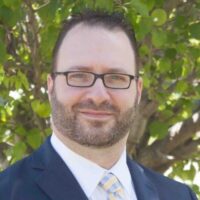


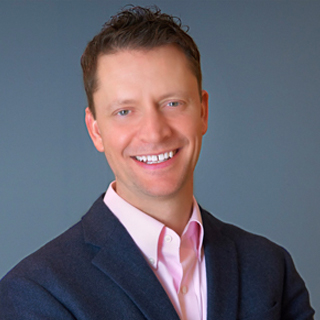


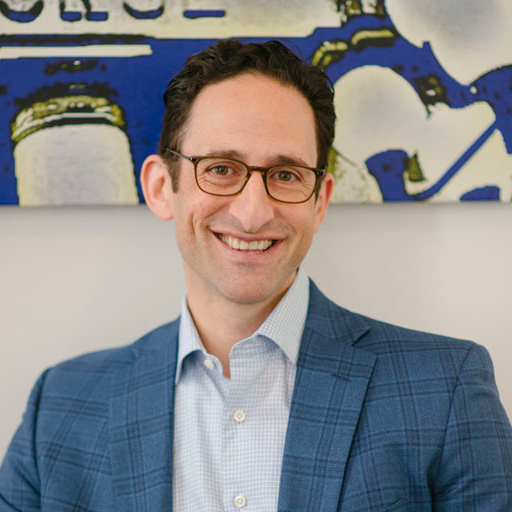






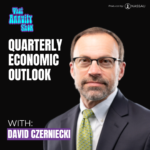
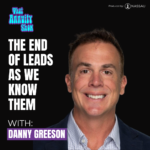
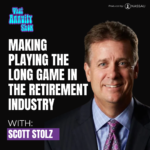

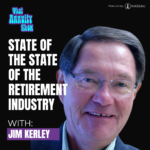

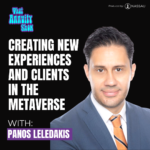
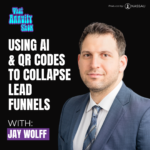
Recent Comments